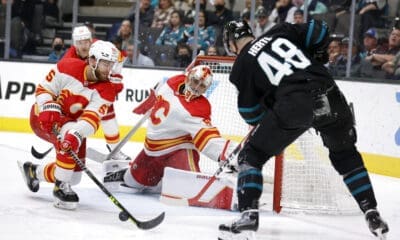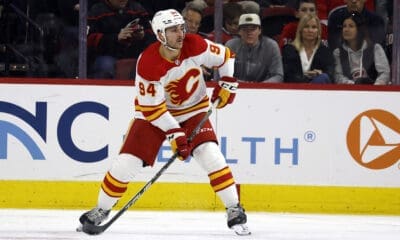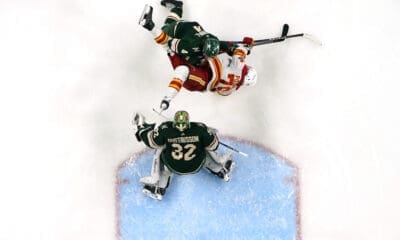Calgary Flames
Flames vs Sharks fancy stats recap: That’s more like it
No, they didn't win. But if the Flames play more games like this, they'll be on the right track. There's a lot to take from this game, and it's all pretty good.
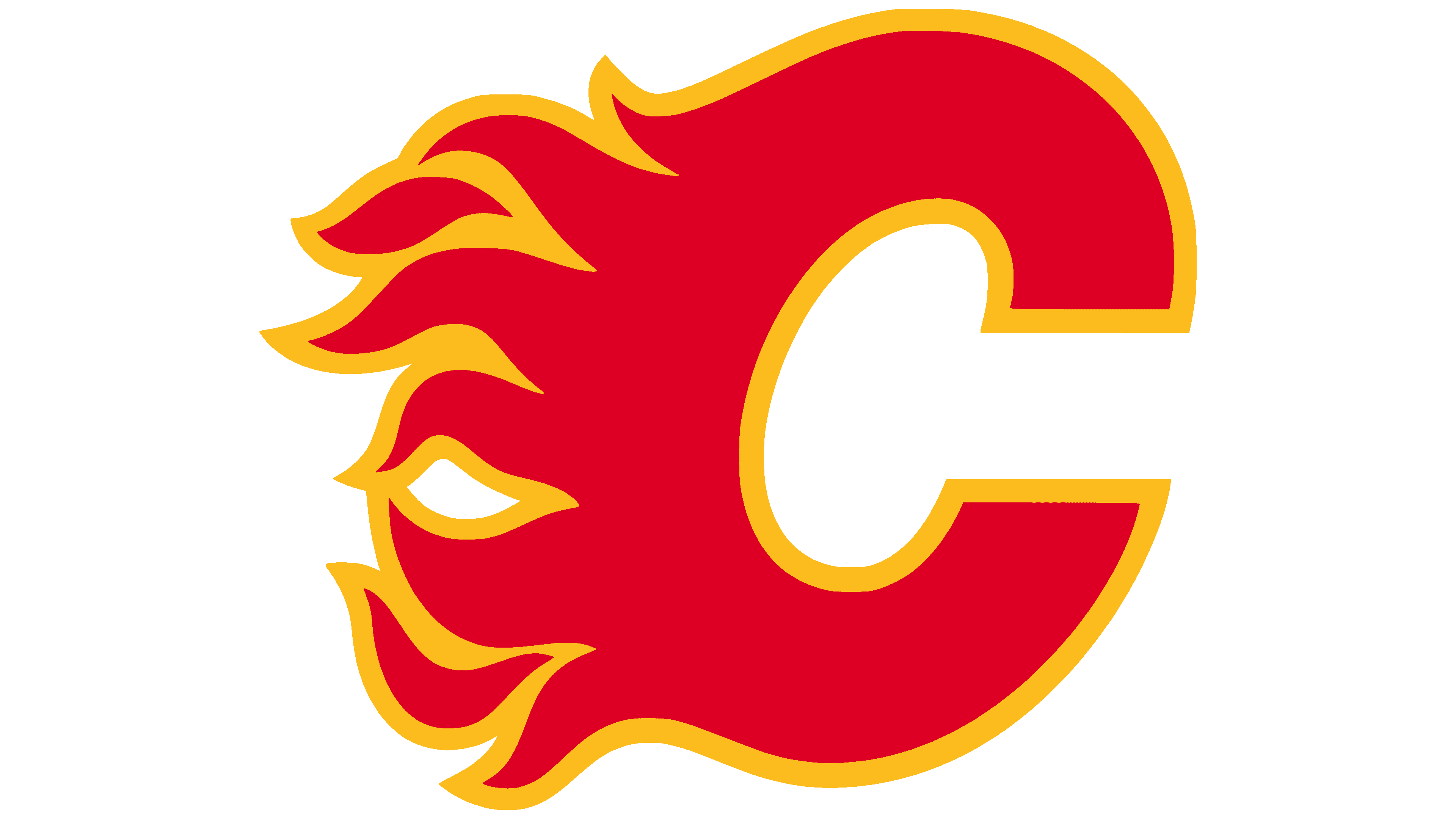
Two games ago, the Arizona Coyotes dominated the Calgary Flames in advanced stats. The Flames won 5-2, because sometimes, that’s just what happens. Looking at the overall corsi of a game doesn’t dictate what’s going to happen in the game, it gives us an idea of what might happen. If you’re outshooting a team, chances are better you’re going to outscore them than if you were the one being outshot.
That doesn’t always come to fruition. It didn’t against the Coyotes, and this time, it didn’t against the Sharks. The Flames were the better team. They thoroughly outplayed the Sharks, and deserved a win. But like Karri Ramo on a shutout streak, Antti Niemi battled hard for his team and held the Flames off, earning his win.
Because seriously, the Flames were the vastly superior team this time. Via HockeyStats.ca:
There are some pretty notable flatlines by the Sharks there in the first and second periods. During those times, the Sharks didn't direct a single puck in the vicinity of Ramo. No missed shots. No blocked shots. No shots on net. Not a thing, while the Flames were hitting Niemi at a pretty steady pace.
It took them until the third period to really get anything going, and because of Niemi's play, they were in a position to win by that point. Here's a period by period look at the game, via NaturalStatTrick:
Flames vs Sharks - All Situations

- Those first two periods were seriously fantastic by the Flames, and that’s with the Sharks scoring twice in the second. Sometimes the bounces go your way, sometimes they go against you. This was more one of those “against you” games, because the Flames were thoroughly in control most of the game.
- The Sharks having a lead for most of the second may explain why the Flames had such great possession stats, though. Score effects.
- Johnny Gaudreau’s late second period goal probably woke San Jose up, as they were the better team in the third, and were rewarded for that. Not like the Flames didn’t try their best to get it back, including completely shutting the Sharks down after their five on three, but it just wasn’t meant to be.
Speaking of five on threes, what's it look like when we take out powerplay advantages?
Flames vs Sharks - Even Strength

Overall, there's very little difference between the possession stats for both clubs in all situations and at even strength only, so it was a pretty close game.
Flames Even Strength Data
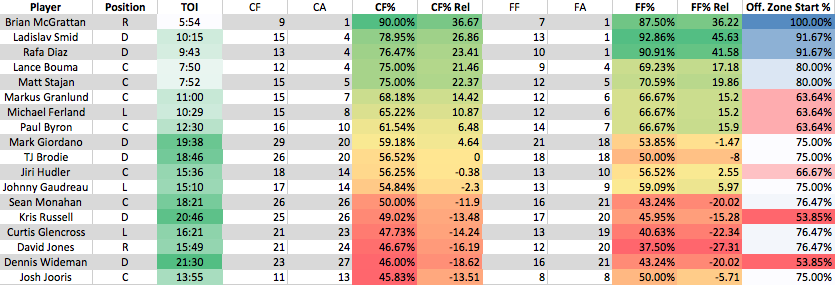
- Just about everyone posted really high possession stats this game, because the Flames controlled most of the game. I would like you to note, though, that the best stats are going to those with the least amount of ice time. That’s because they had the smallest sample size, and smaller sample sizes tend to give you more dramatic results.
- So no, as nice as it would be, Brian McGrattan is not a possession god now. Here’s the nice thing about him, the rest of the fourth line, and the bottom defence pairing, though: they were given favourable circumstances to play in, and they did a good job in those conditions. That’s just about all you can ask from those players, and they came through.
- Continuing down the list, the young line of Markus Granlund, Michael Ferland, and Paul Byron put together a pretty good outing. They didn’t play against top competition – more third liners and bottom pairing defencemen – but they came out victorious in those battles. Granlund’s been asked to play above his head for a while now, so it’s good to see he can control a game when facing opponents more his speed. The bigger fish will come later, when he’s ready.
- Our esteemed saviours, Mark Giordano and TJ Brodie, had to play against top competition all night long. The Sharks’ top players are very good. Giordano and Brodie weren’t crushed, but they definitely fared better when away from the likes of Joe Thornton. So hey, it’s really good we have those two to take the load off of the above-mentioned rookies.
- Josh Jooris really fell off from his linemates. Still, we’re talking about a rookie facing off against Patrick Marleau, and actually coming out on top. He’s clearly becoming a strong player, but Hartley may be a bit overenthusiastic in his usage of him nowadays.
- Sean Monahan played over 15 minutes against Thornton, the most out of everyone on the Flames. When sharing the ice, he had a CF of 48.72%. When apart, he had a CF of 70.00%. Love love love Monahan and his excellent development, but he’s clearly not at Thornton level. He’s also only 20, so it would be insane if he was. The key takeaway here is that Monahan was trusted with huge minutes against San Jose’s best, and he was able to handle it, and that’s extremely impressive and bodes very, very well for the future.
- Kris Russell and Dennis Wideman were left with the worst zone starts out of everyone. With Giordano and Brodie given the task of handling the best of the best and Ladislav Smid and Rafa Diaz not given much trust at all, the job fell to them. They were given the second line to keep in check while not getting to start in the offensive zone as much as their counterparts. Hence, lower possession stats.
- Notice how everyone has very high zone starts. That’s a reflection of just how much the Flames controlled the game. Play had to start from the Sharks’ end more often than from the Flames’ because most of the pucks were going towards Niemi, not Ramo, forcing more faceoffs in the offensive zone. It’s a good thing, of course, and if the Flames can put together a few more games like this, chances are they’ll win more often than not. Hell, they weren’t too far from having this one.
Player Spotlight - Dennis Wideman
Wideman's been interesting as of late, what with the insane shooting percentage and increased responsibilities. He played the most out of everyone this game, including having some pretty significant special teams time. So let's take a look at him and his teammates in all situations:

Wideman saw a little bit of everybody (other than Diaz). He didn't put up particularly great numbers relative to the rest of his team – in fact, he was pretty much at the bottom – but this also does help serve to highlight who are some of the strongest performers who helped him out. The fact that Gaudreau and Monahan are a couple of the top guys is an absolute delight. The Flames are developing a good, young core; some very, very good players are becoming a part of it; and the numbers are just one more source of data backing that up.
by Ari Yanover

